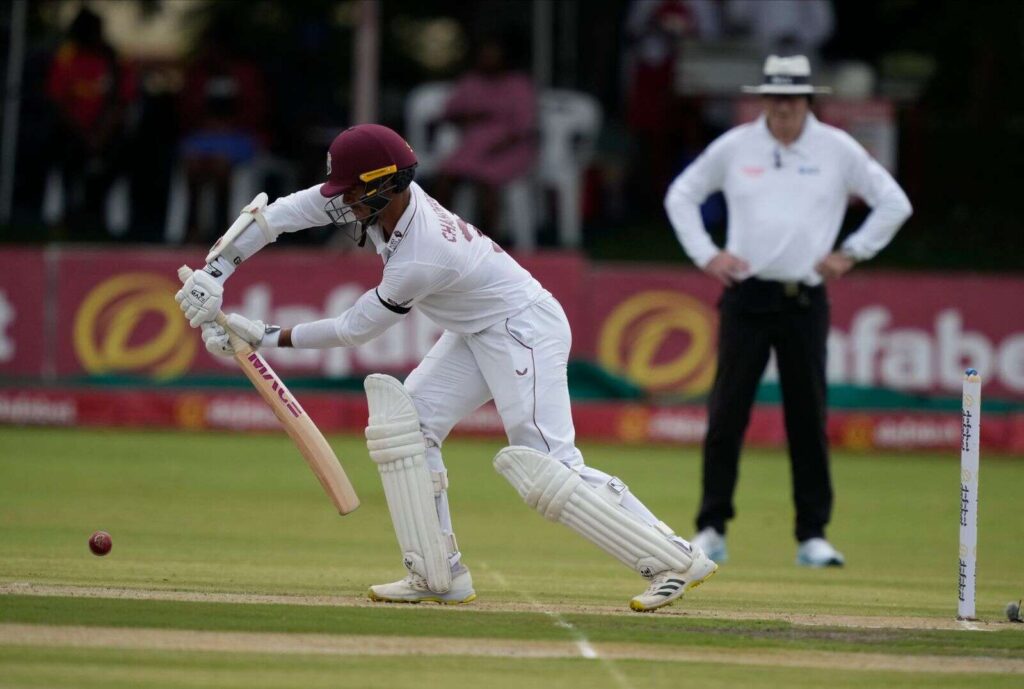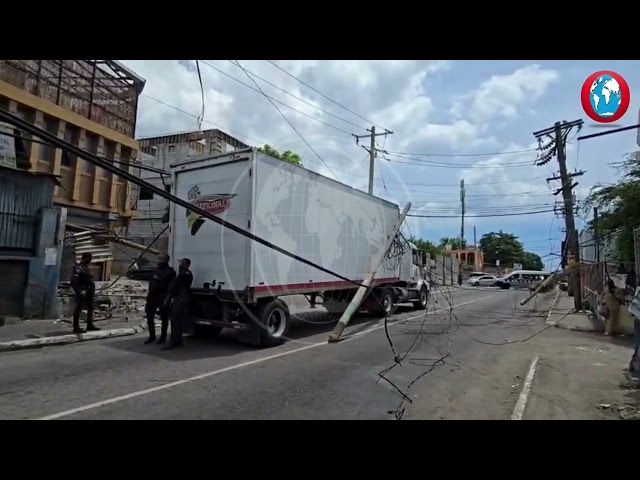President of Jamaica Association of Principals of Secondary Schools (JAPSS) Linvern Wright.
Despite a nearly 22 per cent decline in teacher resignations over the past year, the education sector is far from overcoming the migration crisis due to a high proportion of experienced educators leaving for better opportunities.
That’s the assessment by President of the Jamaica Association of Principals of Secondary Schools (JAPSS), Linvern Wright, who says, “The diminishing numbers don’t necessarily mean that you are getting better at what you’re doing because if your quality is going down, you’re going to have a problem.”
“That is what has happened to mathematics. We had just nine more students passing. Although the percentage was reported by the Ministry of Education to have been better, it’s nothing for celebration. It’s something to be concerned about because you’re not getting more students passing, and that all is as a result of the teachers of quality leaving here for overseas,” Wright told Observer Online.
Newly released data from the Ministry of Education reveals that 1,185 teachers resigned between September 2024 and August 2025, down from 1,517 the previous year — a decline of 332 teachers, or nearly 22 per cent.
It said that between June and August 2025, just before the start of the new school year, 300 teachers exited the system.
Wright explained that some of the subject areas where the country is losing experienced teachers are mathematics, English, music, art, mechanical engineering technology and physical education.
“Yes, we agree that the numbers have declined in terms of those persons who are resigning. What we have a challenge with is that those who have left are really quality people, and so in areas like English, and even in maths, there are some people who have left, and we’re still struggling with that,” he explained.
“We can train people and help them to be much better, and after some years, they’ll be good if they don’t leave. But the real challenges we have are in areas like music and art. We also have challenges with industrial arts, most of the industrial arts subjects, especially mechanical engineering technology… We have challenges with English. Those areas are short. Strangely also, we find that there’s a shortage of physical education teachers,” Wright continued.
To fill the gap left by resigning teachers—including the 300 who exited between June and August 2025—the Ministry of Education noted that it has shared several replacement options with schools, including hiring retired teachers, using pre-trained or temporary teachers, tapping into Cuban teacher programmes and recalling teachers from study leave.
“All the replacement options have been useful to the system. The teachers working as their own replacement has been a viable option and is usually requested by our principals, given that school principals have the opportunity to retain the expertise of the teachers known and proven. We have not had any challenges being reported regarding any of the options,” said Dr Kasan Troupe, permanent secretary in the Ministry of Education.
However, Dr Troupe noted that the short notice of resignations by teachers has made it challenging to replace teachers in a timely manner.
“The challenge reported thus far is the short notice being given to the principals by the teachers who resign. This gives little time to replace once the school term has started. Permanently appointed teachers are required to give three months’ notice, and those who are temporary are required to give one month’s notice,” she added.
Meanwhile, Wright noted that while the replacement efforts outlined by the ministry help keep classrooms staffed, he argued that they lack the consistency and depth of skill needed to support students effectively, especially those who are struggling or preparing for Caribbean Secondary Education Certificate (CSEC) exams.
“They have been helpful in filling a gap. They have somebody there in the space, but as I said, we’re having challenges with many students in terms of retention, in terms of dealing with struggling learners, and in terms of ensuring that we prepare them properly for the examinations. In many instances, when these new people come in now, the retirees come in, and some people are just tired. However, some of them are indeed doing a good job.
“What you really want with the children is consistency so that this teacher can gain the experience of follow-up and understand what is going on. So yes, it has plugged some gaps. But as you see in terms of the statistics, the quality is something that we have to get better,” Wright noted.
Wright said the quality of passes obtained by students at the CSEC level is worsening, even though official statistics suggest stability or improvement. This, he stressed, is a direct result of the brain drain of the cream of the crop.
“It’s our experienced teachers who are going because the people overseas who want teachers want people who have experience. Because with experience usually comes competence, and so those are the persons that they are taking. So it’s a disadvantage to our system. So even if you have, for example, English passes, I think the quality is diminishing.
“Even though we are up there in English in terms of percentage passes, the number of ones and twos pretty much may be declining because of that. As the quality teachers who know the syllabus and who know the nuances of the different areas of the examination that they should be teaching well and can deliver to children in an expert way, they are the ones who are gone,” he said.
To tackle the ongoing issue of teacher resignations, Wright is calling for better compensation for teachers, improved working conditions and greater professional respect for teachers.
“I think many people don’t really want to talk about the fact that we have to try to pay teachers better because one of the things that’s happening is we have to ensure that the people are feeling better about their jobs. In addition, we have to make the conditions of service under which teachers work better. Some of the schools, some of the spaces in which teachers work, especially at the primary level, is a problem, and I think we have to do something about that,” he said.
Wright further noted that public criticism of school rules related to hair, uniforms, and discipline is also a contributing factor to teacher resignations.
“When our society is not working with us in those things, people are frustrated, and they just want to leave because no teacher really likes a bad result, even if they are a bad teacher, and some of these things that we are doing in society are aiding and abetting these bad results. And we have to do a little better than that in support of this system,” he said.
He pointed out that when society undermines school authority, it contributes to indiscipline in the classrooms and poor academic performance from students.
“When you are in schools and you understand what is happening with children, many principals and teachers are frustrated with the indiscipline that comes from the carry-on calls in society to say, leave these children alone. Because when you say, leave them alone with the hair, it becomes about so many other things that people don’t understand,” he said, noting that many of the students who defy the rules are the ones who fail to do their assignments.










